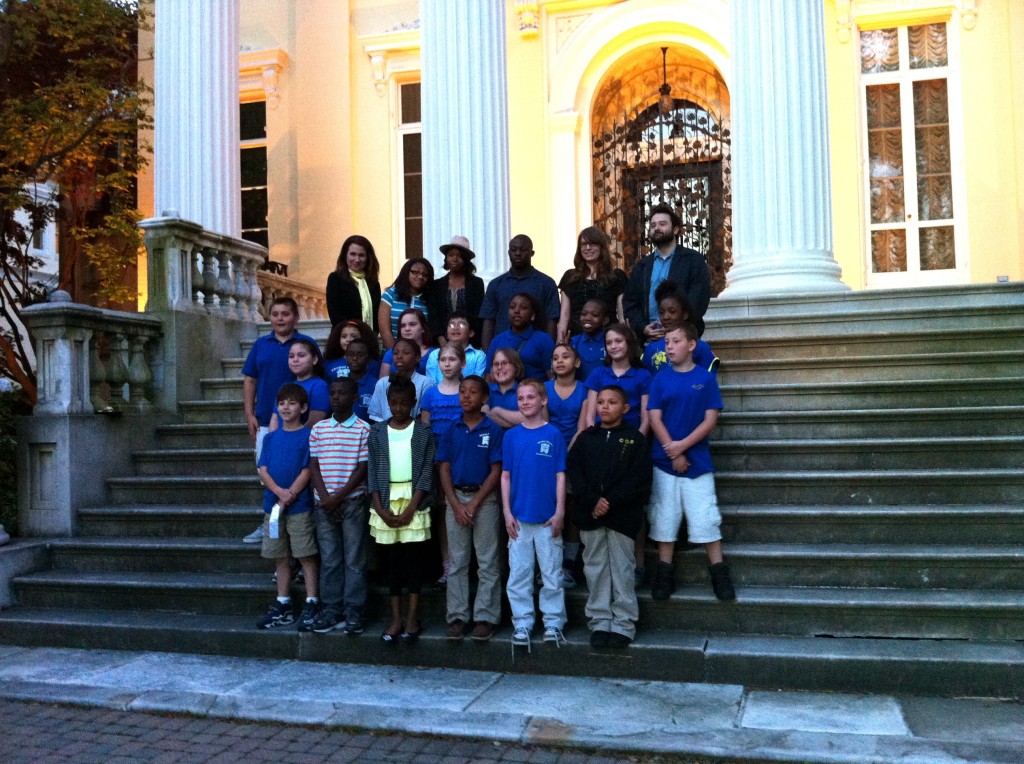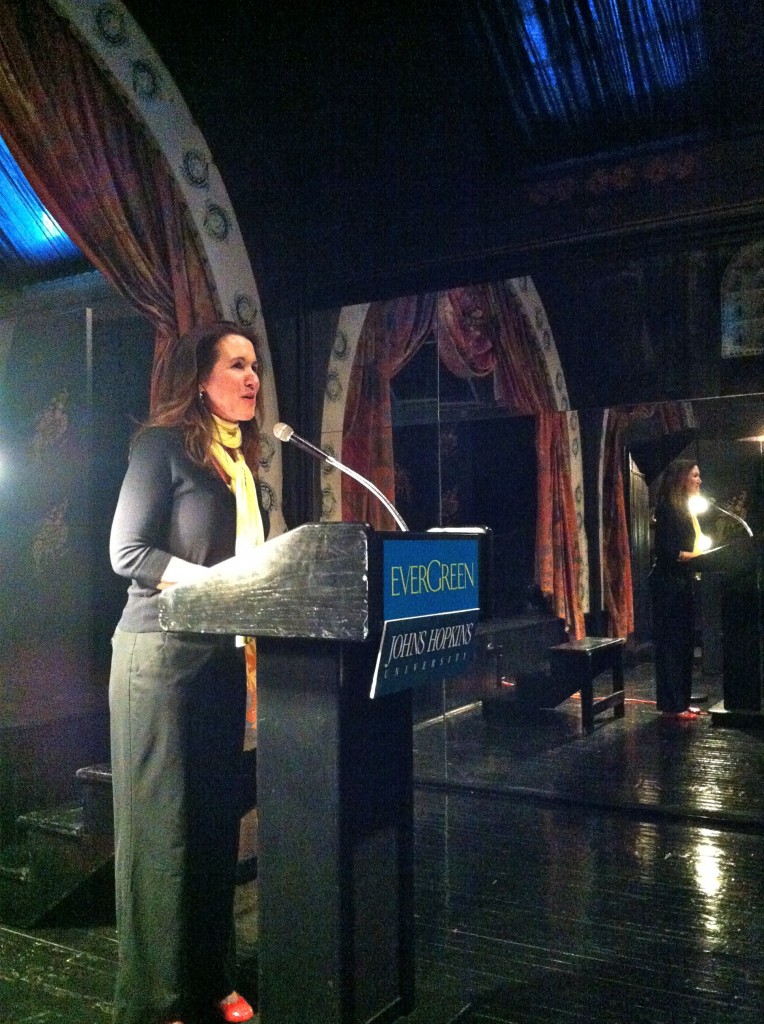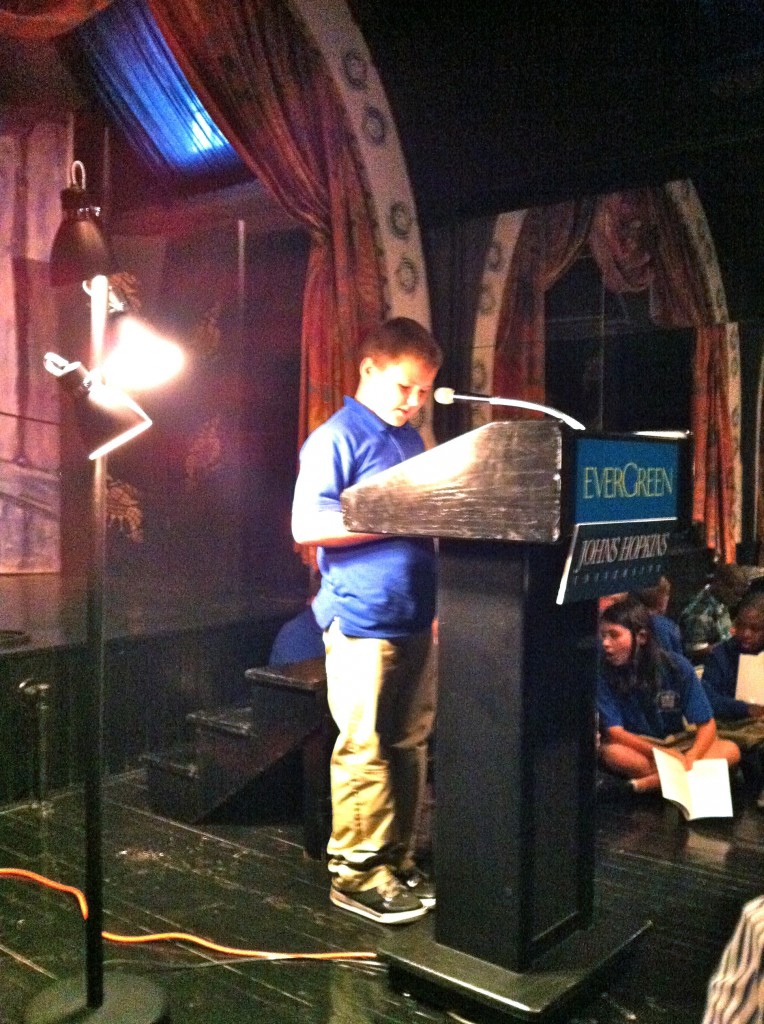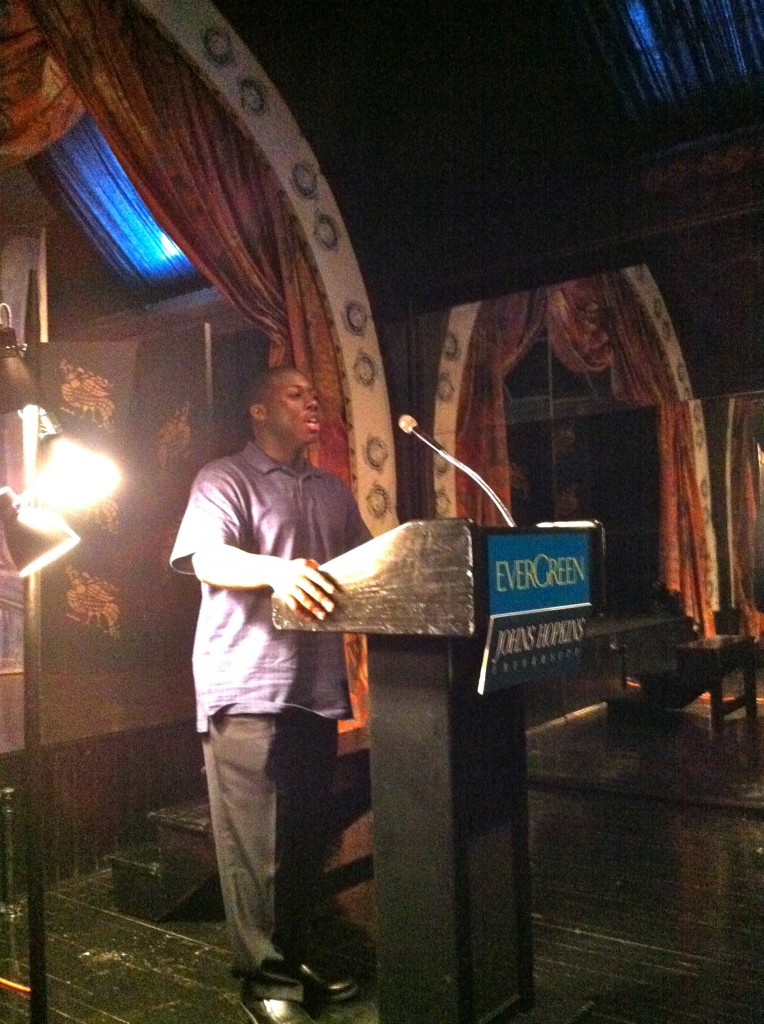“Cures for love; not wanted.
Cures for broken-hearts; needed.
Young souls create a major demand
For hearts they want treated
That can’t see the thin line between love and hate.”
This last stanza of “Thin Line” was recited by writer Chyna Brown at a reading Thursday night at the Evergreen Museum & Library. Like other readings in Baltimore, this one showcased a diverse group of writers and writing styles. Some of the pieces were funny; some touched on important social issues. Some did both. But unlike other readings in Baltimore, this event was made up of elementary, middle school, and high school students. Brown is a ninth grader at Baltimore City College High School, and she wrote her poem as a participant in the Writers in Baltimore Schools writing workshops.

Writers in Baltimore Schools (WBS) is a non-profit organization that provides students with literary development through in-school, after-school and summer creative writing workshops. The program publishes an anthology of student writing twice a year through its publication division, Baltimore by Hand.
The reading at Evergreen celebrated the launch of the program’s newest anthology, Baltimore Triumphs. The book includes writing from students at Thomas Johnson Elementary School, Baltimore Polytechnic Institute, Mount Royal Elementary/Middle School, Baltimore City College High School, Barclay Elementary/Middle School and Margaret Brent Elementary/Middle School. Local author Elisabeth Dahl, whose new book, Genie Wishes, is geared toward children the same age as many of the WBS readers, opened the evening by identifying with the students’ efforts. “All of us in this room who like to write are on the same long, winding path to publication,” she said.

This was the second WBS reading held at Evergreen, and the first to include students younger than middle school age. The atmosphere was charged with energy, and despite the inevitable whispers and fidgeting, the students were respectful and supportive of each other. The audience responded with applause, and sometimes laughter, to the creativity and humor displayed as each student read from his or her work. “Fourth graders are more open with their imaginations, whereas middle-schoolers are starting to get more self-conscious,” said WBS Director Patrice Hutton.
One of the writing prompts the students were given to spark ideas for Baltimore Triumphs was to invent a Baltimore superhero. Ravens were a common theme, along with heroes to clean up pollution, stop smokers, and fight crime. Miles Donovan’s Cracker Jack “makes Orioles games fun,” while the title character in Damien Borck’s Graffiti Man! “becomes a millionaire and buys his way off America’s 10 Most Wanted. Then Graffiti Man donates money to build a better Baltimore City, MD.”

Some of the super heroes seemed to stem from the more serious side of real life. “Baltimore Heroes” by fourth grader Brooke Madison Taylor begins, “Super Mom is a hero because she helps people who are homeless by giving them clothes, food, water, shoes, and money.” And Nyla Pompey, also a fourth grader, wrote in “My Hero”: “The most heroic person is my grandfather. He saves my uncle’s life.” The story describes an attempted robbery at gunpoint.
Fourth grader Damon Davies drew cheers from the audience with his story, “Superpoe.” It describes the blackout during this year’s Super Bowl, and the imaginary bird who saved the day by turning the lights back on: “He flicked the switch and it didn’t work. He flicked the switch again and it didn’t work. He did it one more time and it worked! Everyone chanted, ‘Superpoe! Superpoe! Superpoe!’ Then he got back into his jersey and cheered the Ravens on to their victory.”

And ninth grader Joshua Diggins received a resounding round of applause when he closed the reading with a moving tribute to his father, “The Captain,” and ended it by asking his father to stand up in the crowd.
Some were confident, others were shy, but all the students triumphed as they bravely spoke their words into the microphone at the front of packed theater. And as they read from their work it became clear that they are already doing what Dahl recommended in her opening address when she said, “Live with your eyes and ears open. You’re observing life—that’s what writers do.”
2 Comments
Pingback:
Garvi
Fantastic post! The book launch was truly inspiring and this entry captures the spirit of it nicely.
I hope you don’t mind that I linked to it from my post about designing the book cover: http://www.garvisheth.com/2013/04/10/book-cover-baltimore-triumphs/